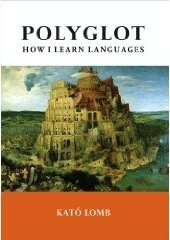What do you think?
Rate this book


216 pages, Paperback
First published January 1, 1970
That summer, my only thought was having a rest, playing ball, and swimming. Therefore, I didn't bring along anything to work with. At the last minute, I threw a Portuguese book into my baggage.
...in the open, by necessity, I resigned myself to the book, and in the prison of my solitude, formed by dolomite rocks on one side and vast forests on the other, between the sky and the water, I started to make the text out. At first, it was difficult. Then I got the hang of it. I resolved I would still get to the bottom of it, without a master or a dictionary. To spur my instinct and creativity, I imagined I would be hit by some great trouble were I not to understand it exactly, or maybe an unknown tyrant would even condemn me to death.
It was a strange game. The first week, I sweated blood. The second, I intuited what it was about. The third week, I greeted the birds in Portuguese, who then chatted with me...
...I very much doubt if I could ever use it in my life or if I would be able to read any other Portuguese books. But it is not important. I did not regret this summer's steeplechase. I wonder about those who learn a language for practical reasons rather than for itself. It is boring to know. The only thing of interest is learning.
...An exciting game, a coquettish hide-and-seek, a magnificent flirt with the spirit of humanity. Never do we read so fluently and with such keen eyes as in a hardly known, new language. We grow young by it, we become children, babbling babies and we seem to start a new life. This is the elixir of my life.
...Sometimes I think of it with a certain joy that I can even learn Chinese at my ancient age and that I can recall the bygone pleasure of childhood when I first uttered in the superstitious, old language "mother," and I fall asleep with this word: "milk."